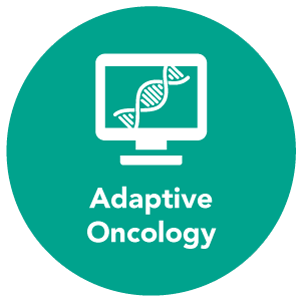OICR is proud to welcome Dr. Shraddha Pai to its Computational Biology Program as a Principal Investigator. Here, Pai discusses current challenges in understanding diseases and what motivates her to tackle some of the biggest challenges in biomedical research.
What are some of the research questions you’re interested in?
I’m very driven to understand why different people with the same cancer type, have different outcomes and respond differently to the same treatment. As genomic assays get cheaper, we learn more about molecular interplay in different cells, and our population datasets become larger and mature, we are able to integrate different layers of the genome and cell types, to try to get at this question. For example, we now believe there are four main types of medulloblastoma with different underlying molecular networks and outcomes. This field of research is called ‘precision medicine’: using patient profiles to match them with the most effective treatment. But really this is just a new phrase to describe what doctors have been doing since the dawn of medicine; it just means that now we’re using powerful computers and algorithms to find patterns in much larger and complex genomic datasets. The principle is the same.
As a trainee in Dr. Gary Bader’s group, I led the development of an algorithm that integrates several types of patient data to classify patients by outcome. Our method – called netDx – adapts the idea of recommender systems, used by Netflix and Amazon, to precision medicine. Just as one would ask Netflix to “find movies like this one”, netDx helps identify patients “with a treatment profile like this”. In a benchmark, netDx out-performed most other methods in predicting binary survival in four different types of cancer. Importantly, netDx is interpretable, and recognizes biological concepts like pathways. This makes it a useful tool to get mechanistic insight into why a predictor is doing well, and provides a way to understand the underlying biology and perhaps drive rational drug design.
I also have a special interest in understanding the link between epigenetics and disease, particularly as this pertains to the brain. Epigenetics refer to molecular changes that change how the genome behaves – for example, turning a gene on or off in a given cell type. My own previous research in mental illness has found epigenetic biomarkers related to psychosis, which explain the distinctive features of this condition. The same may be the case in certain types of cancers, particularly those of developmental origin.
How do you plan to unravel these complex layers of biology?
My research program has two main goals. The first is to build models for precision medicine – predicting disease risk, treatment response – starting with population-scale datasets that have several types of patient data. I’m hoping to use existing and emerging data such as UK BioBank, CanPath, ICGC-ARGO and the Terry Fox Research Institutes’ datasets, and ongoing clinical trials, to identify which clinical outcomes are easily amenable to our approaches. The models my group builds will incorporate prior knowledge about genome organization and regulation, so that these are interpretable. For example, we will use epigenomic maps of specific tissue types, or data from single-cell resolution maps, pathway information, to find and organize relevant needles in the genomic haystack. This feature will give us interpretability, which is key to increasing confidence in a model, as well as to improving the understanding of cellular pathways that affect disease and eventual drug development.
My second goal is to understand the epigenomic contributions – particularly developmental changes – to cancer risk, using a combination of molecular biological, genomic and analytic techniques.
As I work toward these goals, I hope to collaborate on complementary projects, such as identifying DNA methylation changes in circulating tumour DNA and improving how we subtype adult tumours. These projects will hopefully lead to new biomarkers, and ultimately improvements to how we diagnose and treat cancer.
Importantly, the software that my team builds will also be openly available to the research community, so others can apply my methods to different types of diseases. I’m excited to get started.
Your work applies beyond cancer. How do you traverse these different disease areas?
The reclassification of disease based on molecular or other biomarkers, and how disease subtype affects risk and treatment response, isn’t unique to cancer – the same research questions extend to other types of disease such as metabolic diseases, autoimmune diseases and mental illness. At the end of the day, we are looking at the same system organized at the molecular, cellular and organ-level, with similar principles of genomic regulation and perhaps similar considerations for drug discovery. Our algorithms are based on these general principles and can therefore be used to answer similar questions for different disease applications, or very different types of cancer. Of course, it’s important to collaborate with teams that have domain expertise to make sure the algorithms are “fine-tuned” for a particular application, and I look forward to benefitting from those partnerships.
What excites you about this type of work?
I’m excited to join a community where basic research is so strongly connected to clinical purpose. Personally, I am very motivated by the prospect of a positive impact on patients within my lifetime and feel that my group’s work is more likely to have a valuable impact in an environment that combines basic and translational research. That said, we’re only just beginning to see the benefits of precision medicine and many challenges remain to bring genomic knowledge into practice. I hope that I can create more useful methods and models for precision medicine and improved clinical decision-making in the coming decade.
I’m especially excited to be at OICR because of the Institute’s access to clinical trials, strong genomics and computational biology program, and pharmacology team. If my group can find promising biomarkers and leads, we can work with OICR collaborators in the Genomics and Drug Discovery groups to move from basic research to application.


